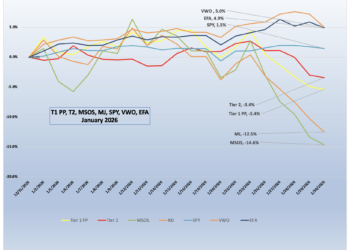Neighbors Maryland and Delaware are poised to be the next states to establish adult-use marijuana programs after lawmakers have sent bills to their respective governors.
Delaware Gov. John Carney has until Saturday to act on HB 1, which legalizes personal use and possession of 1 ounce or less for adults 21 and older. He has a few extra days to act on HB 2, by Wednesday, April 26. HB 2 regulates and taxes the sale of marijuana similar to alcohol.
In Delaware, the governor has 10 days to either sign or veto legislation, excluding Sundays, or it automatically becomes law. Although the Senate passed the marijuana bills in late March, they were not actually delivered to the governor until April 11 and April 14.
“Bills don’t automatically go to the governor after passage. They might sit with the legislature for days, weeks or even sometimes months,” Shannon Keith, spokeswoman for the Delaware House Democrats, said in an email. “There is no timetable or ‘typical time period’ for bills, but the time these bills did sit is not out of the ordinary.”
Carney, a Democrat, has vetoed similar legislation in the past. On Tuesday, he said he doesn’t support the act, but he also said it’s “time to move on,” Marijuana Moment reported.
Rep. Ed Osienski, a sponsor of the bills, described in a statement the “long, multi-year journey with the Marijuana Control Act,” including “countless hearings, debates, stakeholder engagement and deliberations” and incorporating suggestions and changes from the governor’s office.
“I am hopeful that the governor will take all of this into account as he considers these bills and that he will acknowledge the desires of an overwhelming majority of Delaware residents,” he said.
Maryland to establish laws to enforce public mandate
In Maryland, the path is more certain. Gov. Wes Moore said he will sign the enrolled SB 516. Voters already approved a constitutional amendment for recreational use for adults 21 and older last year, and the recent legislation sets a regulatory system in place before the law takes full effect July 1.
“Governor Moore is fully committed to creating an adult-use cannabis market to bolster Maryland’s economy and benefit those who were disproportionately affected by the war on drugs,” spokeswoman Brittany Marshall said in an email.
“The legislature and the administration took direction directly from the voters. It’s clear that Marylanders wanted an adult-use cannabis market that provided quicker access and opportunity to underserved communities while establishing safety guardrails – and that’s exactly what will be delivered with this legislation.”
The cannabis reform bill went through revisions in the House and Senate that were reconciled April 10. Marshall said Moore has 50 days to sign the bills that passed during the 2023 legislative session, which ended April 10.
Maryland is already a medical-use state for patients 18 and older. The referendum, passed by 67% of voters in November, decriminalized possession of less than 2.5 ounces to a fine effective Jan. 1 of this year. Beginning July 1, adults 21 and older may possess up to 1.5 ounces of cannabis flower, 12 grams of concentrated cannabis, or a total amount of cannabis products that does not exceed 750 milligrams of THC. They may also grow up to two plants at home.
Marijuana grower, processor and dispensary businesses would be regulated by a new, independent Maryland Cannabis Administration (MCA). Existing medical cannabis business licenses would be converted to adult-use operation licenses by July 1, if they choose. Sales of adult-use cannabis would be taxed at 9%.
A new business licensing system would be put in place with three separate rounds, according to the Maryland Medical Cannabis Commission website. In an anticipated timeline, the first round is scheduled for this fall, with the second round to be held in 2024.
In round one, the MCA may approve up to the following number of business licenses:
- Standard licenses:
- 20 grower licenses
- 40 processor licenses
- 80 dispensary licenses
- Micro licenses:
- 30 grower licenses
- 30 processor licenses
- 10 dispensary licenses
- 10 incubator space licenses
The MCA would also establish a state cannabis testing laboratory.












